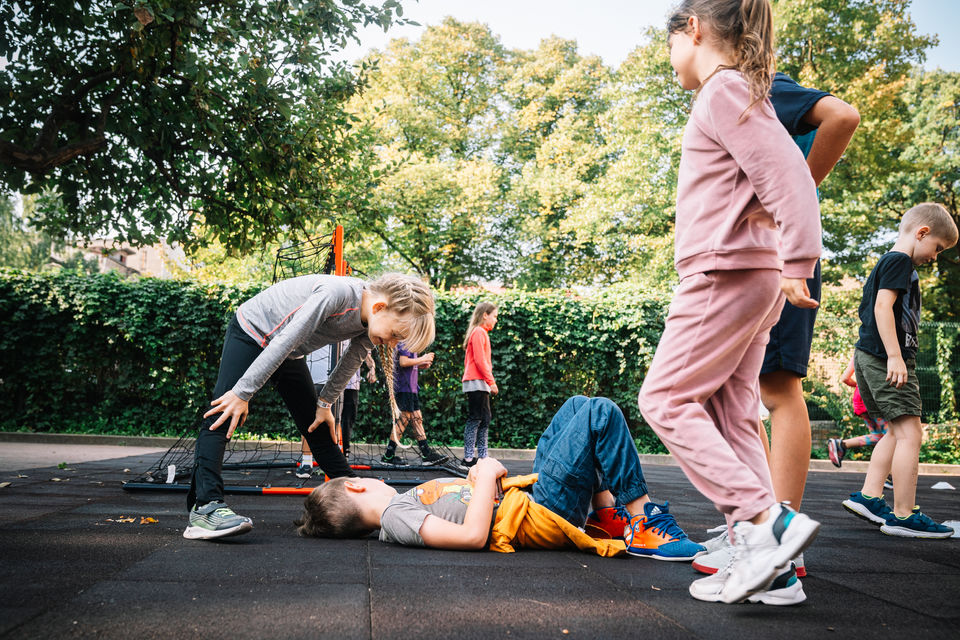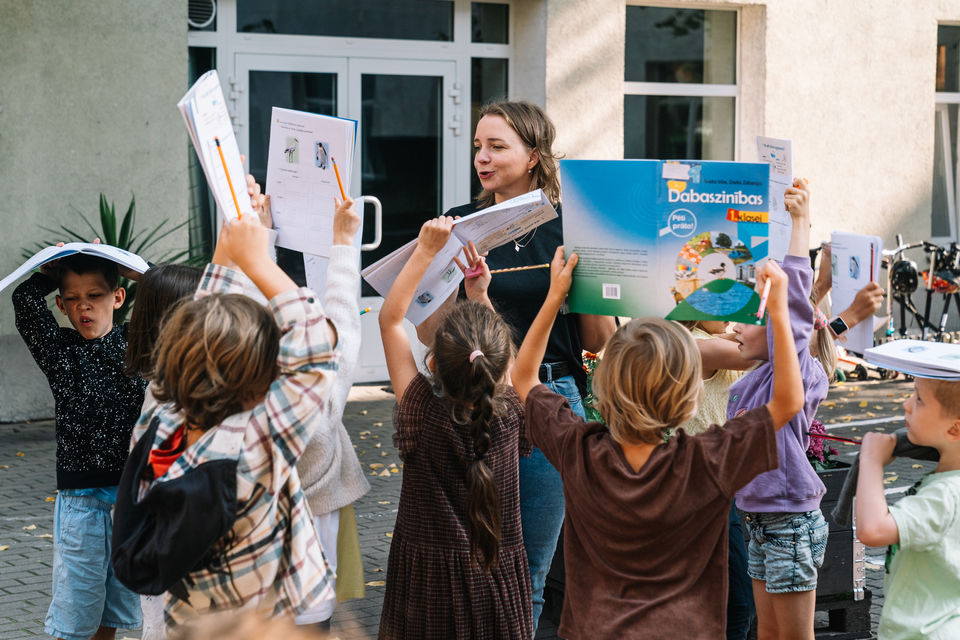SCHOOL VALUES
The school's activities are based on three values - growth, responsibility, and community.
These values come to life through mutual collaboration among the parties involved in the educational process (teacher, student, and parents). DOMDARIS understands this collaboration as mutual effort for the child's development, providing approaches that meet learning needs, creating a friendly and supportive environment, fostering mutual and respectful communication about the student's achievements and challenges, and involving students in decision-making.
GROWTH IN STUDENT ACTIVITIES
Independent Self - Expression
The student is self -sufficient, standing for their interests without comparing themselves to others.
They find activities for themselves during free time, not overly concerned with others' comments on academic work, appearance, or interests, recognizing their own value and uniqueness.
Emotional Control
The student can articulate their emotions, understand why they feel a certain way, and knows mechanisms to handle emotions like anger or disappointment.
They avoid harming themselves or others during moments of anger and can recognize when someone needs help. They can also celebrate their achievements and those of their peers.
Self - Guided Learning
The student can set goals for themselves.
They follow three steps - think on their own, ask classmates, and consult teachers. They can determine when and what kind of assistance is needed and are comfortable asking for help or support from the teacher. Graduate of DOMDARIS can self-motivate to learn new skills, plan learning, lead it and evaluate achievemnts to distinguish improvements.
Goal - Oriented
The student independently sets goals, plans steps to achieve them, and evaluates whether the goal has been achieved.
They assess what helped or hindered the goal attainment process.
Learning from Mistakes
The student understands that making mistakes is an integral part of the learning process.
They can identify the circumstances and factors that led to a mistake. Also, they can draw conclusions that develop future learning.
Problem Solving
The student tries to use known tools to solve problems. They know where to seek help, monitor their learning achievements, and proactively seek assistance when needed.
Showing Initiative
The student takes responsibility, offers help, willingly attends extracurricular activities, and suggests exploring a topic, etc.
The student is genuinely interested in the learning process and actively participate in it.
Awareness of the Value of Learning
The student understands why they are learning and how the acquired knowledge can be applied in daily life.
RESPONSIBILITY IN STUDENT ACTIVITIES
Responsible Towards Oneself and Others
The student fulfills assigned duties (class responsibilities, duties during class events, etc.) at school. They care about their own safety and the safety of their classmates and teachers.
Material Responsibility Towards Resources
The student handles their and others' property with care and seeks permission before using it.
Responsibility for Learning
The student actively participates in class, completes assignments, and achieves set goals according to their abilities at that specific moment. If a student hasn't finished a task, they take the initiative to attend additional learning sessions and seek the teacher's guidance to discuss how to complete the work.
Independence in Daily School Processes
The student can independently manage their learning resources (pencil case, sports uniform, etc.). They take a new book from the school’s library when they've finished reading the previous one. They handle library and student e-cards responsibly. They organize their workspace before and after completing assignments, and they know how to arrange their place at the table in the school restaurant. They can use the class schedule, navigate school premises, and follow a timetable.
Personal Hygiene
After using the restroom, the student washes their hands and dries them. They wash their hands before eating. They maintain personal hygiene by regularly washing and wearing clean clothes.
Concern for the School Environment
The student actively contributes to maintaining clean environment at school by picking up fallen papers, helping others, and depositing lost items in the lost and found box. If witnessing emotional or physical violence, they get involved, call for help, and can provide first aid when necessary. They report incidents of violence to teachers and express opinions to make the school a pleasant place for everyone.
Observance of School Rules
The student adheres to school’s rules and understands the positive and negative consequences of compliance or non-compliance with these rules.
Responsible Behavior Outside School and on Social Media
The student applies knowledge and skills regarding respectful communication and responsible behavior learned in school to environments outside of school. They are aware that each environment has its own rules and that consequences apply for adherence or non-adherence to those rules.
COMMUNITY
STUDENT ACTIVITIES
Collaboration
The student actively collaborates, listens, and considers the opinions of peers, schoolmates, and adults.
They enhance their teamwork skills and are willing to collaborate with all classmates, without segregating friends from others.
Working Towards a Common Goal
The student observes and implements school values, supports others in their healthy development, and encourages the involvement of fellow students in learning. They move towards a common goal of fostering a positive and inclusive learning environment.
Tolerance
The student understands and accepts diversity, including differences in experiences, learning and working paces, knowledge and skill levels, opinions, lifestyles, and beliefs.
Sense of Belonging to the Class and School
The student recognizes that they are a part of their class and the larger school community.
They demonstrate pride in their classmates, schoolmates, and the school as a whole through their actions and opinions. They willingly attend school and actively participate in the learning process. They contribute to the improvement of the school environment and the learning process by submitting suggestions and assisting in the implementation of proposed changes. The student represents the school in Olympiads and competitions.
Greetings
The student greets classmates, teachers, and the parents of other students. They initiate greetings and respond when greeted by others. They adhere to the norms of politeness.
Building and Maintaining Positive and Respectful Relationships
The student supports and helps others without being asked. They are observant and offer assistance when someone needs help. The student actively works to create and maintain positive and respectful relationships with others in the school’s community.








